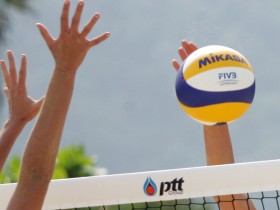
WADA suspends Rio Lab accreditation for IRMS testing
The suspension is effective as of January 18, 2012 and prohibits the UFRJ Rio de Janeiro Doping Control Laboratory from carrying out IRMS testing for up to six months.
The Rio Laboratory continues to be accredited to conduct all other anti-doping testing as required in the International Standard for Laboratories (ISL).
During the suspension period the Rio Laboratory will continue to receive samples, but in the event IRMS testing is required it must transfer the samples to another WADA-accredited laboratory with the required IRMS accreditation.
The UFRJ Rio de Janeiro Doping Control Laboratory may appeal WADA’s decision to the Court of Arbitration for Sport within 21 days of notice.
Pursuant to the ISL, WADA is responsible for accrediting and re-accrediting anti-doping laboratories, thereby ensuring that they maintain the highest quality standards.
This monitoring is conducted in conjunction with ISO assessment by independent national accreditation bodies that are full members of the International Laboratory Accreditation Cooperation.
Whenever a laboratory does not meet ISL requirements, WADA may suspend the laboratory’s accreditation.
WADA will re-evaluate the status of the Rio Laboratory with regards to IRMS testing in the course of the suspension period.
In October, the FIVB closed a doping case concerning the Brazilian men’s beach volleyball player Pedro Solberg Salgado following weeks of extensive research due to concern surrounding the initial results from the WADA-accredited laboratory in Rio de Janeiro, announcing that new evidence received from the WADA-accredited laboratory in Cologne cleared him of any suspicion.
FIVB President Jizhong Wei said at the time: “As a signatory to the World Anti-Doping Code, the FIVB is fully committed to the fight against doping and devotes significant resources annually for doping controls and anti-doping education. In this important battle, however, we cannot afford losing confidence in the analytical results of WADA-accredited laboratories. As much as we need to identify and sanction those who cheat, we must ensure that no athlete is faced with a false positive. For this reason I am satisfied that, after review of the complete laboratory documentation, the FIVB followed the recommendations of its own experts and decided to ask for an additional analysis prior to sanctioning the athlete.”
FIVB Medical Commission president Dr. Roald Bahr added: “The FIVB will now ask WADA to investigate the cause for the contradictory analytical findings. We trust that WADA will carefully look into this regrettable incident and will succeed in further harmonizing the analytical procedures used by the laboratories.”